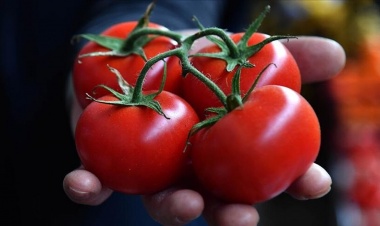Nourishing Your Body: Food Recommendations During Ramadan
Ramadan is a sacred month in the Islamic calendar, observed by millions of Muslims worldwide. It is a time of fasting, reflection, and spiritual growth. While fasting from dawn until sunset is a fundamental aspect of Ramadan, it's essential to prioritize nourishing foods to sustain energy levels and maintain good health throughout the month. Here are some food recommendations to help you make the most of your Ramadan experience.


Suhoor (Pre-dawn Meal):
Suhoor is the pre-dawn meal consumed before beginning the fast. It's crucial to choose foods that provide long-lasting energy to sustain you throughout the day. Opt for complex carbohydrates such as whole grains (oats, brown rice, whole wheat bread) to keep you feeling full and energized. Incorporate protein-rich foods like eggs, yogurt, cheese, or lean meats to support muscle function and prevent hunger pangs.
Hydration:
Staying hydrated during Ramadan is essential, especially since you'll be abstaining from food and water for an extended period. Aim to drink plenty of water during non-fasting hours to prevent dehydration. Coconut water, fruit juices (without added sugar), and herbal teas are also excellent hydrating options. Avoid caffeinated and sugary beverages, as they can lead to increased thirst and dehydration.
Iftar (Breaking the Fast):
Breaking the fast at sunset, known as iftar, is a moment of celebration and gratitude. Start with dates and water to replenish your body's glucose levels and rehydrate. Follow with a balanced meal consisting of a variety of food groups. Include lean proteins such as grilled chicken, fish, or legumes, along with complex carbohydrates like quinoa, sweet potatoes, or whole wheat pasta. Don't forget to incorporate plenty of vegetables and fruits to provide essential vitamins, minerals, and fiber.
Avoid Overindulgence:
While it may be tempting to indulge in rich and heavy foods during iftar and suhoor, it's essential to practice moderation. Overeating can lead to digestive discomfort, lethargy, and weight gain. Instead, focus on portion control and mindful eating. Listen to your body's hunger and fullness cues, and savor each bite mindfully.
Balanced Snacking:
Between iftar and suhoor, it's normal to feel hungry. Opt for balanced snacks that provide sustained energy without causing blood sugar spikes. Choose nutrient-dense options like nuts, seeds, fresh fruits, and yogurt. These snacks are rich in protein, fiber, and healthy fats, keeping you feeling satisfied until the next meal.
Conclusion:
During Ramadan, prioritizing nourishing foods and healthy eating habits can help you maintain optimal health and well-being. By following these food recommendations, you can ensure that your body receives the nutrients it needs to thrive throughout the month of fasting. Remember to listen to your body, stay hydrated, and approach mealtimes with gratitude and mindfulness. Ramadan Mubarak!
Tepkiniz nedir?

















